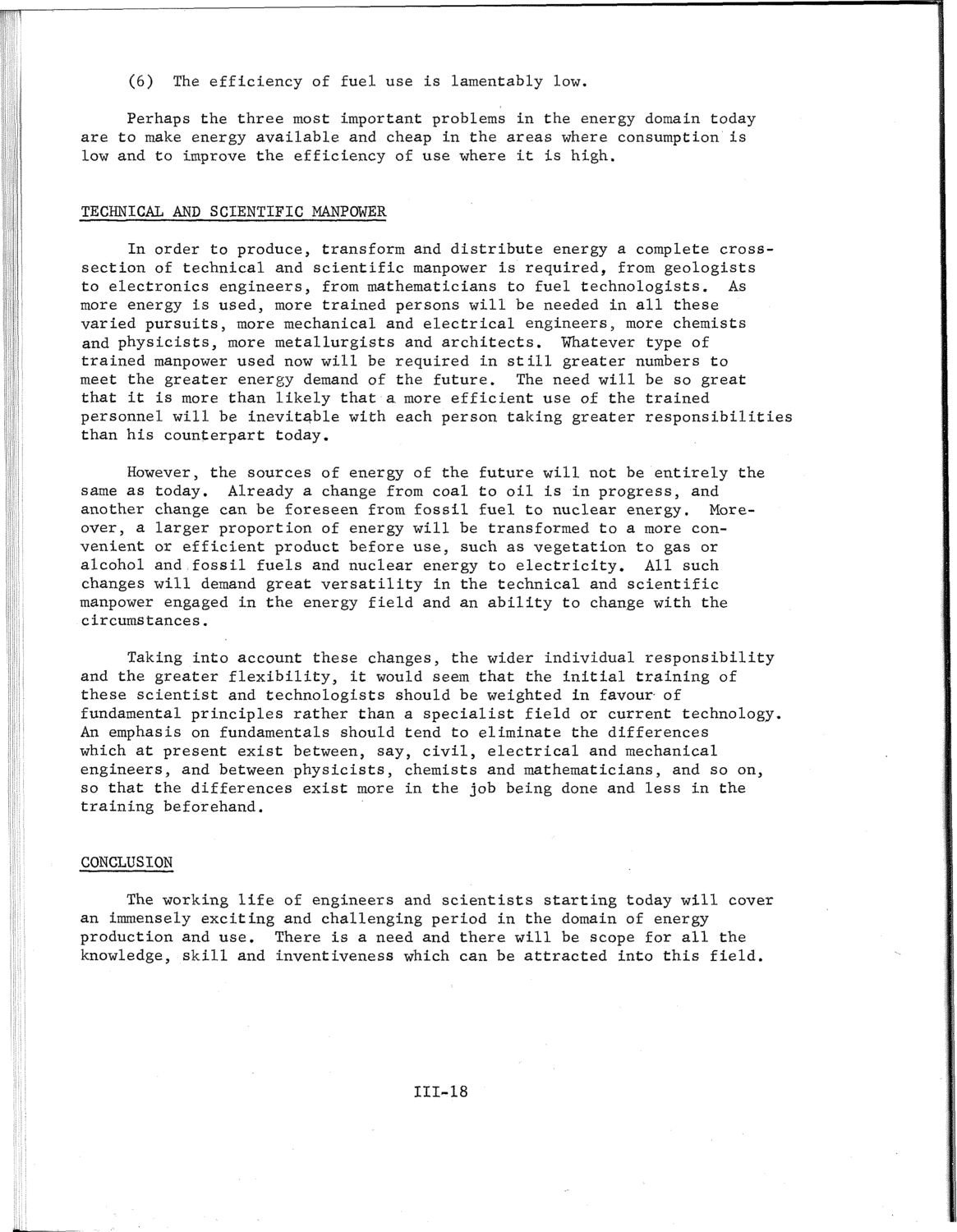| |
| |
Caption: SWE - Proceedings of the First International Conference of Women Engineers and Scientists
This is a reduced-resolution page image for fast online browsing.

EXTRACTED TEXT FROM PAGE:
(6) The efficiency of fuel use is lamentably low. Perhaps the three most important problems in the energy domain today are to make energy available and cheap in the areas where consumption is low and to improve the efficiency of use where it is high, TECHNICAL AND SCIENTIFIC MANPOWER In order to produce, transform and distribute energy a complete crosssection of technical and scientific manpower is required, from geologists to electronics engineers, from mathematicians to fuel technologists. As more energy is used, more trained persons will be needed in all these varied pursuits, more mechanical and electrical engineers, more chemists and physicists, more metallurgists and architects. Whatever type of trained manpower used now will be required in still greater numbers to meet the greater energy demand of the future. The need will be so great that it is more than likely that a more efficient use of the trained personnel will be inevitable with each person taking greater responsibilities than his counterpart today. However, the sources of energy of the future will not be entirely the same as today. Already a change from coal to oil is in progress, and another change can be foreseen from fossil fuel to nuclear energy. Moreover, a larger proportion of energy will be transformed to a more convenient or efficient product before use, such as vegetation to gas or alcohol and fossil fuels and nuclear energy to electricity. All such changes will demand great versatility in the technical and scientific manpower engaged in the energy field and an ability to change with the circumstances. Taking into account these changes, the wider individual responsibility and the greater flexibility, it would seem that the Initial training of these scientist and technologists should be weighted in favour- of fundamental principles rather than a specialist field or current technology. An emphasis on fundamentals should tend to eliminate the differences which at present exist between, say, civil, electrical and mechanical engineers, and between physicists, chemists and mathematicians, and so on, so that the differences exist more in the job being done and less in the training beforehand. CONCLUSION The working life of engineers and scientists starting today will cover an immensely exciting and challenging period in the domain of energy production and use. There is a need and there will be scope for all the knowledge, skill and inventiveness which can be attracted into this field. 111-18
| |